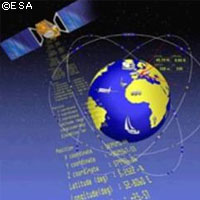Galileo receives public backing
Europeans are highly in favour of the Galileo project and its creation of an independent satellite navigation system for Europe, according to the findings of the latest Eurobarometer. A total of 26,000 citizens from across the 27 EU Member States were surveyed for the barometer. They were asked about a range of issues linked to satellite navigation systems in general, and in particular the Galileo project, which aims to provide Europe with a satellite radio navigation system to rival those of the US, China and Russia. What emerged is an overall impression that Europeans are fairly familiar with satellite-based navigation systems and their use, even if many are not using the technology themselves. According to the survey, a total of 68% of respondents were aware of these systems, but only 20% of those surveyed said they were actually using navigation applications in their car or while cycling or sailing. When asked which were the most useful navigation services available, 22% of those surveyed favoured applications which help people with disabilities, while 15% of people considered the technology most useful for search and rescue operations. Applications providing information on public transport and the weather were also popular. Yet despite this awareness of satellite navigation technology and its application in everyday lives, the majority (59%) of those surveyed were unaware of the Galileo project, which has been in existence since 1999. Nevertheless, when presented with the possibility of depending on US, Russian or Chinese navigational systems, an overwhelming majority of citizens - some 80% - said that the EU should have its own independent system. This support was unwavering even when respondents were informed that completing the project would necessitate securing additional public funding of some €2.4 billion. Overall, 63% of Europeans believe that the EU should secure the funds needed as soon as possible, while only 23% opposed the increase in investment. However, the jury is still out on whether abandonment of Galileo would harm the EU's image - those who are concerned numbered 44%, while those who would not consider it a problem if the project is not completed or suffers significant delays accounted for 41%. 'Europeans recognise that Galileo could have a big impact on their life in the future and they expect greater effort at European level to develop this technology,' said European Commission Vice-President Jacques Barrot, who is in charge of transport. 'Therefore, we will continue the work with Member States and industry to complete this major European innovation project and get the most out of our investments.' EU transport ministers are expected to discuss the future of the Galileo project at their meeting on 7 June.



